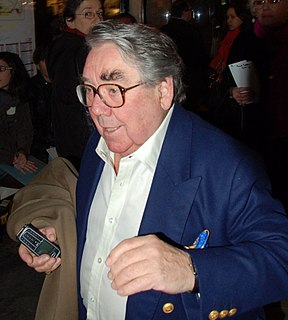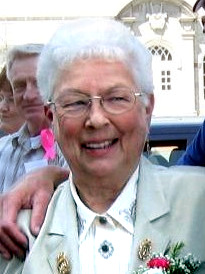A Quote by William Rees-Mogg
Anyone who has walked through the deserted palaces of Versailles or Vienna realise how much of a part of the life of a nation is lost when a monarchy is abolished. If buckingham palace and windsor castle were transformed into museums, if one politician competed against another for president of the republic, Britain would be a sadder and less interesting place. Our politicians are not men such as could challenge more than a thousand years of history.
Quote Topics
Against
Another
Anyone
Britain
Buckingham Palace
Castle
Challenge
Could
Deserted
History
How
How Much
Interesting
Less
Life
Lost
Men
Monarchy
More
Much
Museums
Nation
Our
Palace
Palaces
Part
Place
Politician
Politicians
President
Realise
Republic
Resting Place
Sadder
Than
Thousand
Thousand Years
Through
Transformed
Versailles
Vienna
Walked
Were
Windsor
Would
Would Be
Years
Related Quotes
People think they have taken quite an extraordinarily bold step forward when they have rid themselves of belief in hereditary monarchy and swear by the democratic republic. In reality, however, the state is nothing but a machine for the oppression of one class by another, and indeed in the democratic republic no less than in the monarchy.
If the Book of the Law could be forgotten for so many years, who knows what was done to it during those years? Maybe it was lost later, too. And another one replaced it, and that one is no longer the original text. These are questions that perturb me much more than whether it's history or not history.
My old mind hadn’t been capable of holding this much love. My old heart had not been strong enough to bear it. Maybe this was the part of me that I’d brought forward to be intensified in my new life. Like Carlisle’s compassion and Esme’s devotion. I would probably never be able to do anything interesting or special like Edward, Alice, and Jasper could do. Maybe I would just love Edward more than anyone in the history of the world had ever loved anyone else. I could live with that.
When President Obama entered the White House, the economy was in a free-fall. The auto industry: on its back. The banks: frozen up. More than three million Americans had already lost their jobs. And America's bravest, our men and women in uniform, were fighting what would soon be the longest wars in our history.
Women were free in older times when the Islamic nation was strong. There are so many examples in history, not more than a thousand years ago, when Muslim women were leaders, scientists, professionals, and so on. It is all about justice, and justice can be attained through having the rulers accountable to their people.
By my count, the Deputy Prime Minister has sworn an oath of loyalty and service to Her Majesty no fewer than four times in the last two years, yet he has used his position as a minister of the Crown as a podium from which to rail against our history and our heritage. The minister says that instead of the monarchy he would prefer an entirely Canadian institution, but he fails to recognize that the monarchy is as Canadian as the House of Commons itself.
If the monarchy were removed tomorrow, it wouldn't have a huge effect on the national mind-set. The monarchy is mildly interesting and largely harmless. I can't find I can get very heated about it. In the next couple of generations, it is bound to go. There is so much else in the world that is more interesting.
'A Naval History of Britain' which begins in the 7th century has to explain what it means by Britain. My meaning is simply the British Isles as a whole, but not any particular nation or state or our own day... 'Britain' is not a perfect word for this purpose, but 'Britain and Ireland' would be both cumbersome and misleading, implying an equality of treatment which is not possible. Ireland and the Irish figure often in this book, but Irish naval history, in the sense of the history of Irish fleets, is largely a history of what might have been rather than what actually happened.
If Aristotle, Livy, and Harrington knew what a republic was, the British constitution is much more like a republic than an empire. They define a republic to be a government of laws, and not of men. If this definition is just, the British constitution is nothing more or less than a republic, in which the king is first magistrate. This office being hereditary, and being possessed of such ample and splendid prerogatives, is no objection to the government's being a republic, as long as it is bound by fixed laws, which the people have a voice in making, and a right to defend.
It is part of our "Mormon" theology that the Constitution of the United States was divinely inspired; that our Republic came into existence through wise men raised up for that very purpose. We believe it is the duty of the members of the Church to see that this Republic is not subverted either by any sudden or constant erosion of those principles which gave this Nation its birth.
































